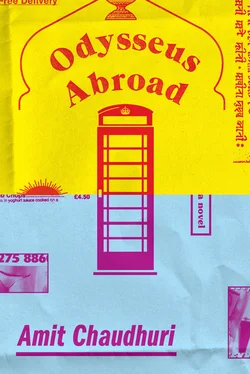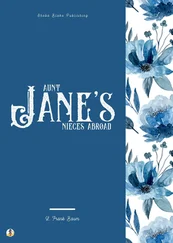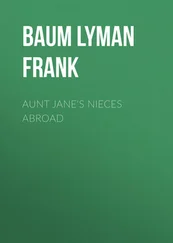Having shaken off Shah, they emerged from the left-hand passage of 24 Belsize Park. It was 4:20 p.m. Through the chestnut trees fell shadow-spots. “Shah is an old soul,” observed Ananda’s uncle as they progressed to the rise towards Haverstock Hill. “Old and tired.” “Old soul?” said Ananda. “Yes, born into the world again and again and again. Most Indians and Pakistanis are ‘old souls.’ They’ve been born so many times that they’re tired, they’ve returned to reality so often they take it for granted. If you ask Shah, ‘I gave you ten pounds yesterday for some cigarettes — what happened to the change?’ he’ll look astonished, and say, Arrey Nandy, I gave it back to you in the afternoon, because he thinks he did. He’s been around for a very, very long time. Small inaccuracies escape him, and minor discrepancies don’t matter. Similarly, if you ask an Indian on the street, ‘Bhai, which way to Camden Town?’ he’ll give you directions even if he’s never heard of Camden Town. Old soul. Tired from having come back repeatedly. No longer mindful of detail, just living out, yet again, the duties and obligations.”
They were out of breath, going up the slope. The Town Hall was coming up on the right, the petrol pump on the left. “The new souls?” asked Ananda. “Oh, they’re all around us,” said his uncle. “There’s a great impatience to be born.” Ananda felt a rustling, a single-minded urgency in the air. Dappled. “The new souls are competing to be born and experience sensuous pleasures — bars, sex, cars, big homes. They want all that — soon.”
—
They reached the top, the head of the T, and turned left. They had, as yet, no plan. They appeared to be heading for Hampstead. It was hard to know who was following whose lead; neither wanted to consciously take the upper hand, although Ananda’s uncle came up with impromptu suggestions: “Let’s cross, there’s more shade on the other side,” and “Don’t step on that, be careful. The English let their dogs defecate anywhere.” His uncle muttered imprecatory caveats if they approached a dog’s stool. They went past the Trust House Forte hotel, and across the zebra crossing before a posh pub and the new KFC, coming to the church whose name they didn’t know. Here they slowed down, catching their breath, but also in deference to the building. They couldn’t recall having ever spotted activity around it. They presumed (without saying this aloud) it must be abandoned. In spite of the rest of the road being sunlit, the green around the church had a stubble of shadow darkening it, as if there were a cloud hanging over it. It was a ghostly edifice. “It is possible to see the badger here,” said his uncle, waving grandiosely, though Ananda wasn’t sure what he meant by “here.” “Really?” He was mildly curious and a bit disbelieving — he had no idea what a badger looked like. But his uncle claimed to be a great observer of flora and fauna, hoarding their names and characteristics. “Yes, there are all kinds of animals around,” he said, as (again, without consciously deciding to) they descended the path on the right — down which hunched tramps could be seen advancing — to the Royal Free Hospital. “Like foxes. I saw a fox here once.” As they emerged into Pond Street, there was a widening, and, in response, his uncle, glancing at a pub as if it were a royal residence, said: “You run into all kinds of actors and politicians here. I bumped into Glenda Jackson a few years ago. She smiled at me.” He was a snob, secretly proud to belong to these parts; so that, when people asked him where he lived, he admitted (Ananda had overheard him) modestly, reluctantly: “Hampstead.” The successful man of the world. Director at Philipp Bros, a man with a family and a grand home. Hampstead indeed!
—
They sat down at last at the base of the hill, in a homely-looking tea shop. Ananda’s uncle tapped his sneakers. “These are very comfortable. No matter how much you walk, your feet will never hurt in these.” They were grey and ugly. He eyed Ananda’s brown leather shoes. “You should change those,” he advised. “You’ll be much happier.” Picking up the menu, he protested: “No rum baba!” Then read: “Strudel, merring, fruit tart— dhur , the English have become too fancy of late.” There was a new internationalism afoot in London, and he bristled against it. “You don’t get treacle tart any more,” he said contemptuously. “There are only a few pubs in London where you can get treacle tart.” His baritone was filling up the space by the window where they sat. A woman two tables away glanced swiftly back. After reflecting further on the fact that there seemed to be a recent recoil in the nation from extremities of sweetness, they ordered tea and a muffin. Ananda, by now, realised that his uncle was going to make no enquiry about how he was or what frame of mind he was in (despite knowing his nephew was unremittingly, even tediously, unhappy in Warren Street). He wasn’t going to ask after his parents either.
So Ananda said anyway: “Those people upstairs are always making a racket. They start at midnight. Telling them not to hasn’t worked.” He stared at the cubes of sugar. “Today’s Friday, they’ll be up later than usual.”
His uncle wasn’t listening. Instead, he said to Ananda: “Pupu, have you heard this song?”
Bhalobeshe jadi shukho nahi
Tabe keno eto bhalobasha?
If loving gives no happiness
Why do we love so much?
He’d begun to hum the lines, one elbow on the table. His eyes were droopy; semi-ecstatic. The woman at the nearby table was pretending not to hear. It was one of Tagore’s limpest compositions. But if he said so, there might be a build-up to a scene. They had several of those over Tagore, or Ananda’s mother, or this or that relation — the scenes had their cathartic uses, but were best averted. His uncle could become warlike about Tagore; so best to be peaceable. If Ananda answered with, “No, I haven’t heard it,” his uncle would say: “ What? Your repertoire of songs is rather small.” Instead, Ananda said:
“I have heard it — from you. If you recall, you’ve been singing it each time we’ve met this month.”
Every time. His uncle must be in love. Either from a transient thrill of recognition, smiles exchanged between him and a shop girl, or unrequited devotions. Unrequited was not the appropriate word. For love not to be reciprocated, the object of the emotion must know they’re loved. There was no knowledge here. It was in his uncle’s head — as a tumultuous event. Shortly before he’d retired, his uncle had fallen in love with Gilberta, who used to help her mother with the odd janitorly chore at Philipp Bros. The office janitress was a Portuguese woman called Rosa. Gilberta was a sixteen-year-old: a picture of innocence evidently — when his uncle wasn’t tackling Freddy Gamble and Paul Middleton’s leftover work, he studied her as she scrubbed the floor. He was stricken with melancholy; because he loved her, and believed that — if he’d had the courage, the temerity — she would have loved him.
“Do you know what she did once?” he’d said to Ananda during one of their several discussions about Gilberta, a faint look of horror on his face.
“What?”
“I could see her in front of the bathroom standing with mop and bucket (I was the one person at work, everyone had gone). I wasn’t sure if she knew I was there. Next moment, she knelt in front of the bucket as if to wipe something, and — looking straight at me — gestured with her hand towards the place down there”—his own hand hovered fleetingly above his crotch: he was still a bit scandalised — as though an epiphany had turned out to be its opposite.
Читать дальше











